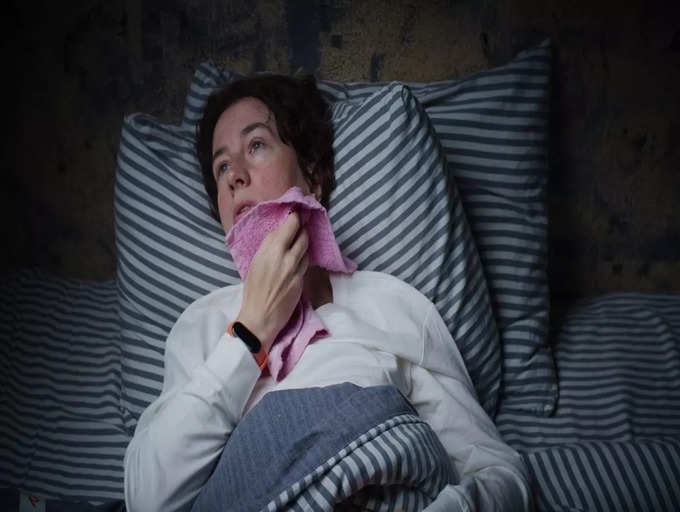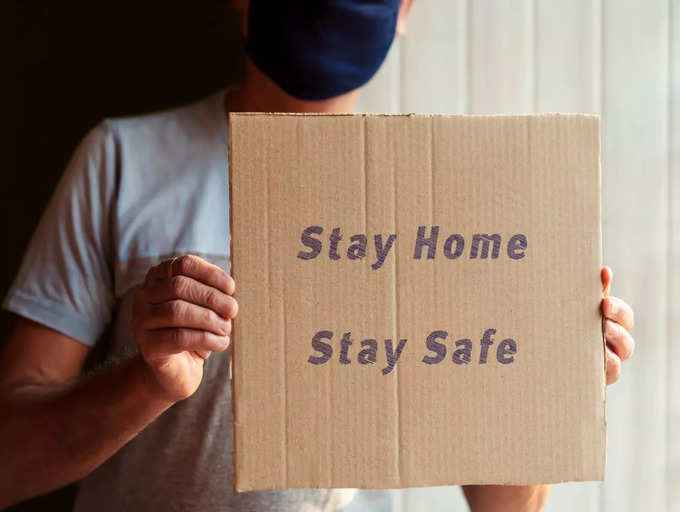Omicron BA.5 strain can cause this extra symptom during night
New COVID symptoms
Coronavirus continues to evolve over time with emerging new variants and the new Omicron BA.5 is a highly contagious sub-variant. Further, there has also been a change in common symptoms experienced during COVID-19 infection, with new symptoms emerging that were not previously reported or rarely reported in earlier variants.
Earlier, the classic common symptoms included fever, loss of sense of smell and taste, shortness of breath. At present, a COVID-infected individual is more likely to report gut-related symptoms, sore throat, sneezing, persistent cough, and headache. There has also been a new symptom which especially occurs at night and was not linked to COVID before.
Night sweats due to Omicron

Described as "strange" by immunologist Professor Luke O'Neill, Trinity College Dublin, Omicron BA.5 is causing night sweats. These are repeated episodes of extreme perspiration and are a sign of an underlying medical condition or illness. Due to night sweats, you end up sweating so much that even your night clothes and bedding are soaking wet.
Before Omicron, this symptom was typically associated with other medical conditions such as the flu, menopause, anxiety, hyperhidrosis, or even cancer. However, night sweats have now also been linked to the COVID variant, and these new emerging symptoms are creating new and different experiences of the Coronavirus.
More about Omicron BA.5COVID
variant Omicron BA.5 was first discovered in South Africa in February
2022, a month after BA.4 was identified in the same country. Both these
sub variants have spread around the world and sparked resurgence of
COVID infections, including a rise in breakthrough infections as well.
However, data shows that hospitalizations and deaths due to the new
variants continue to be low, compared to earlier in the pandemic.
Importance of vaccination
Regardless of your vaccination status, if you are infected with Omicron, you may be able to spread the infection to others. Still, despite reinfections and breakthrough infections, vaccination remains the most effective public health intervention to protect people from COVID-19.
But very importantly, if you are vaccinated and you’re boosted, it doesn’t progress into severe disease is the message to keep reminding people. This includes primary series, booster shots, and additional doses for those who require them.
Vaccination stimulates the body’s immune response to the virus, which can prevent you from getting infected and also reduce the severity of the disease, if infected.
Other COVID symptoms
Symptoms associated with COVID infection can vary from person to person. Some of the common symptoms include high temperature or shivering, continuous cough, loss or change in sense of smell or taste, shortness of breath, fatigue, body aches, headache, sore throat, blocked or runny nose, loss of appetite, diarrhoea and feeling sick.
What to do when infected?

If you are experiencing symptoms of COVID, it is recommended to stay at home and avoid close contact with anyone who is at a higher risk of getting seriously ill from COVID-19. Get rest, stay hydrated and eat nutritious food. Stay in touch with your doctor for any required medication. Be sure to seek medical help if you have trouble breathing, or have any other emergency warning signs. Avoid public transportation and cab ride-sharing. You can go back to your routine activities when you feel better..
